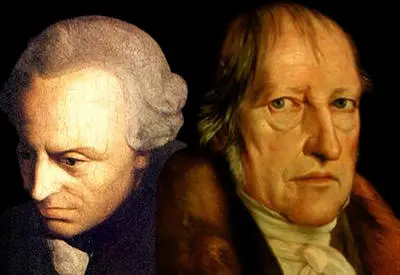Logical positivism famously dismissed metaphysics as meaningless. It failed to satisfy the verification criterion, according to which for any statement to be meaningful, it has to be able to be verified empirically. As positivists like A.J. Ayer argued, there are no facts that can verify metaphysical theories like idealism and realism, one way or another. This influential critique was responsible for the dismissal of metaphysics in analytic philosophy for decades. But instead of successfully burying metaphysics, logical positivism in fact ends up espousing a metaphysics of its own, argues Giussepina D’Oro.
This is the 8th installment in our series The Return of Metaphysics, in partnership with the Essentia Foundation.
Read the previous articles of The Return of Metaphysics series.
It would seem fair to say that today metaphysics is thriving. In the philosophy of mind panpsychists argue that the nature of reality is not quite how it is thought of by physicalists; in contemporary analytic metaphysics debates concerning the nature of time are all the rage. This was not the case in the first half of the twentieth century when logical positivism mounted one of the most scathing attacks on the very idea that the nature of reality could be known by reflection alone, a priori, from the so-called philosophical armchair. Logical positivism sought to put an end to what it regarded to be irresolvable metaphysical pseudo-disputes by arguing that genuine knowledge claims must be verifiable, that there must be, at least in principle, evidence that can be cited to determine whether a claim is true or false. Claims which cannot be found to be either true or false in this way, the argument goes, express meaningless propositions, and the treatises in which they are contained should be confined to the flames, just as Hume suggested.
 SUGGESTED READING
The return of metaphysics: Hegel vs Kant
By Robert Pippin
SUGGESTED READING
The return of metaphysics: Hegel vs Kant
By Robert Pippin
Logical positivism, however, failed genuinely to leave metaphysics behind. Rather than doing away with the idea that knowledge of pure being is possible, it merely placed natural science in the privileged epistemic position once occupied by philosophical reflection as a presuppositionless form of knowledge capable of disclosing reality in itself. As Collingwood argued in An Essay on Metaphysics (1940), a thinly disguised attack on Ayer’s Language Truth and Logic (1936), the only way to go beyond the metaphysics that logical positivism critiqued is to acknowledge the presuppositions that govern our attempts to come to know reality in different domains of inquiry, and to make explicit the role that they play in giving rise to the kind of questions different forms of knowledge seek to answer. It is only once the role that presuppositions play in shaping the questions we ask (and seek answers to) in different forms of inquiry is acknowledged, that one can truly go beyond the uncritical dogmatic metaphysics that positivism tried, but arguably failed, to do away with.




















Join the conversation